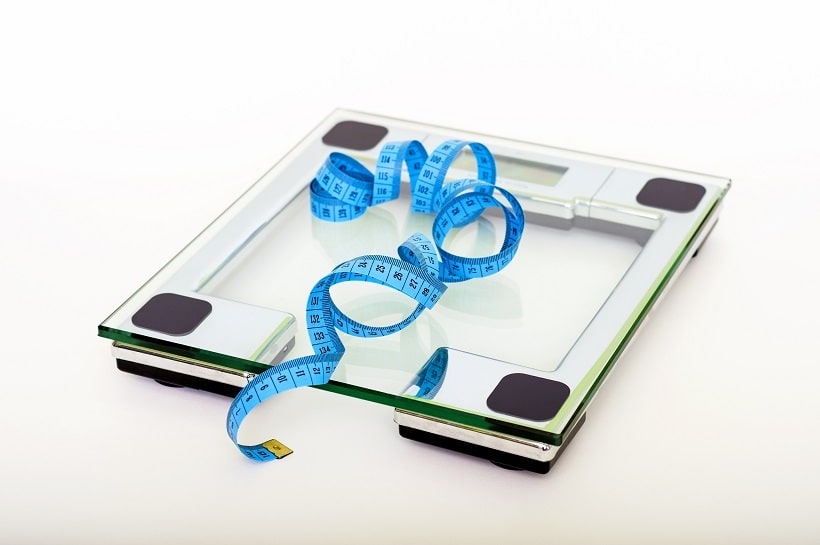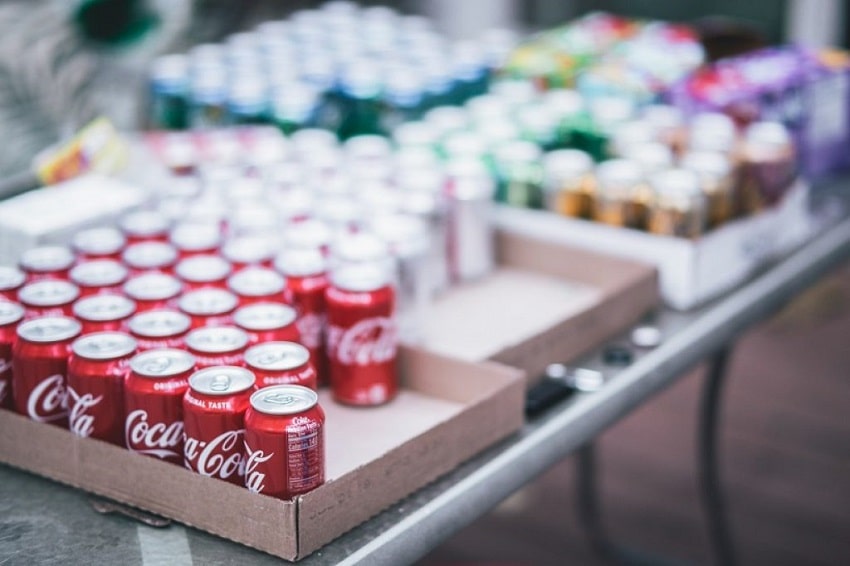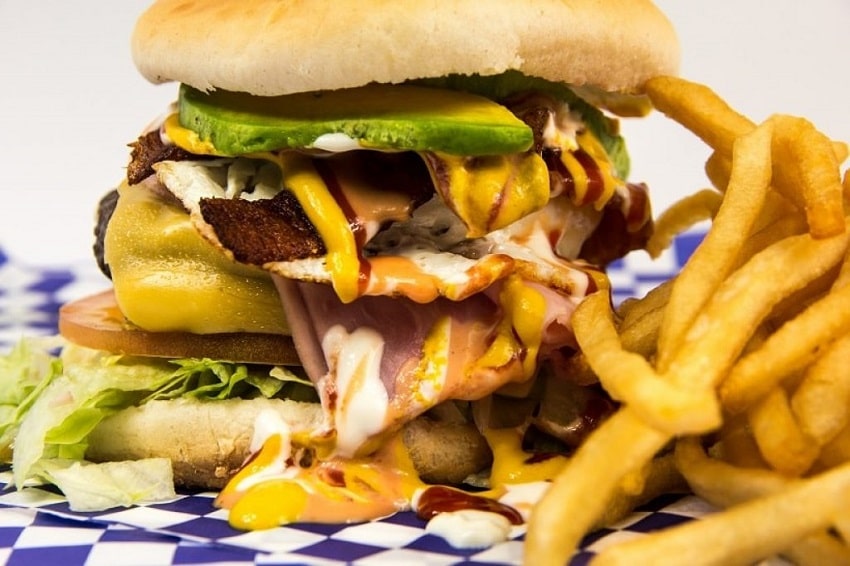
Are you using all the regular tricks and still not losing weight? This article could help you learn why.
Weight loss doesn’t need to be complicated. But your body’s too smart to let you make mistakes – even easy ones.
So, if you’re struggling to move the pounds, it could be down to one of the following pitfalls.
Here are 25 reasons you’re not losing weight
1. You’re not sleeping well
Sleeping well is one of the best ways you can support your health. It turns out that it could be the backbone to your weight loss too.
One study from 2006 found that people who got five hours of sleep were more likely to gain weight compared to seven hours[1]. According to another from 2011, short sleep duration also skyrockets your risk of obesity[2].
It turns out limited sleep does more than make you too grouchy to hit the gym. Apparently, skimping on your sleep throws your hormones completely out of balance.
Deprivation lowers your leptin levels, a hormone which usually suppresses appetite and encourages your body to burn calories. It also triggers a flood of ghrelin to be released, another hormone that kickstarts hunger.
Not sleeping well? This might be why you’re not losing weight either.
2. You’re not exercising enough
Diet is definitely important for weight loss. After all, how can you expect to burn body fat if you’re eating too many calories? But sometimes when you stop losing weight your sedentary habits can be to blame.
Exercising is one of your beast weapons for effective weight loss. Experts suggest you should employ 225 to 420 minutes a week of exercise to stay trim[3]. For maximum impact, aim to stay consistent by regularly working out week after week.
To put the science plainly, exercise increases your calorie usage. Your muscles need energy to pull, push, and propel you through whatever activity you’re doing. If your weight loss diet is on point, this fuel can be forged from excess body fat.
Staying active is full of advantages for keeping fit and healthy. Benefiting weight loss is just one of them.
3. You’re only focusing on exercise
On the flip side, you might be only be focusing on exercise. You can hit all the CrossFit classes you like, but if your diet isn’t on point, you won’t lose body fat.
Hardcore WODs, kickboxing sparring, or marathon bodybuilding sessions won’t outwork a bad diet.
See your body like a bank account and the calories you deposit as cash. For you to lose fat effectively, you need to go overdrawn and into the red. Now, imagine body fat is a second account you keep for emergencies.
If you keep adding in more cash than you spend, you never slip into the red. This is a great place to be financially, but for weight loss, it’s the opposite.
If you never drop into a zone where you burn more calories than you eat, you don’t need to tap into that emergency account. Excess body fat doesn’t get broken down for fuel because your body has plenty of food energy instead.
4. You don’t count calories
So, what if your exercise regimen is already locked in tight? As simple as it sounds, you could just not be counting your calories.
It’s easy for calories to creep up when you don’t track them. Take your eye off the ball and the extra scoops of pasta or second sodas start to add up.
According to the experts, it doesn’t matter what weight loss method you use. The one thing that matters more than anything is maintaining a calorie deficit – aka eating fewer kcals than you use up[4]. Remember the bank balance metaphor?
Of course, it’s much better to tuck into salmon and steamed asparagus for dinner compared to pizza. But if your calories aren’t in check, you’ll not burn body fat anyway.
Try an app like MyFitnessPal for an easy way to track what you eat.
5. You’re drinking too much alcohol

Enjoying too much of your favorite brew can hold back weight loss.
A bottle of beer you’d buy at a bar averages around 114 calories. Of course, that’s not too much to enjoy as a treat. But, when those caps start piling up, so do the kcals.
So, what can you do? The single biggest difference you can make is reducing how much you drink.
Try to save alcohol for special occasions and don’t depend on it to unwind. Finding a non-alcohol activity to socialize can help.
Secondly, choose a clean spirit over cheap beers. A single sipping whiskey doesn’t have half of the same sugars, carbs, and calories as a bottle of suds. Plus, you might savor the good stuff a little more.
There are lots of other reasons alcohol slows weight loss. Enjoy it responsibly to stay fit and healthy.
6. Your cheat meal becomes a cheat day
Cheat meals are a tiny break at the weekend for most people. Depending who you follow on Instagram, they can be a thing of legend for some.
Scientifically speaking, a cheat meal can be good for weight loss. It helps to reset your hormones, keeps morale high, and offers a respite from the repetitiveness of dieting[5][6][7].
But the fun can stop when a momentary meal becomes a day long binge. If you don’t have a furnace of a metabolism, you might find you’re undoing hard work.
Try to curb your cravings and keep your cheat to one or two set meals. Pick your favorite foods and savor every bite! You’ve earned it, so soak in the flavors.
7. You need to eat more protein
Think protein is just for hardcore gym goers? Guess again. It is, in fact, one of the three macro nutrients you need to stay fit, strong, and healthy.
Protein is what your body uses to build muscle. So, if you want to maintain an athletic physique, you can’t miss it out. Losing muscle over body fat is never a smart move – even if it does make you lighter.
Plus, protein has a high thermic effect of around 20-30%. This means that when you eat protein, your body must use that many of its calories to process it. So just by eating protein alone you can crush a few extra calories[8].
Another reason to eat more protein is it helps you to feel full. Studies show it can make meals more satisfying and stop you reaching for the sweet treats[9].
8. You’re eating too much healthy foods
At this point you should understand how important your calorie deficit is. You also know that you can always have too much of a good thing.
Believe it or not, it’s actually possible to overeat healthy food. Granted it’s not as easy as binging on burritos, but there’s still a line to be drawn.
A lot of healthy foods are actually crammed with calories. Avocado, for example, is full of healthy but hefty fats. Peanut butter, although great for you, is notoriously overindulged in too.
We’re not saying don’t eat wholesome! We’re not saying choose chocolate over chicken. All we recommend is keeping track of everything you eat – even the healthy stuff.
9. You’re not lifting weights

Surely if you’re trying to lose weight it’s time to jump on the treadmill? Nobody ever lost love handles and belly fat from lifting weights, right? It just makes muscles bulky, not lean.
Fast forward to today and we’ve left those ideas firmly in the 00s. What gym goers now preach is what sports scientists have said for years – weightlifting is incredible for fat loss.
Resistance training can require a lot of energy. Depending on how hard you train, those demands could be massive.
Studies show that compound lifts like deadlifts and squats can torch through substantial calories[10].
Isolation exercises like bicep curls can still make a difference, but they’re not optimal. Add them in as accessories to accentuate certain spots on your physique.
Lifting can also be used to build muscle which requires energy to be maintained. So, by building lean mass, you can naturally boost your metabolism[11]. Still not lifting weights? Start today.
10. You’re not combining cardio
Way back in 1985, scientists carried out a big study to see if cardio, weights, or a combination of both was best for fat loss.
Interestingly, it turns out neither camp totally trumps the other. Combining both brings about the best results, not one of the other[12].
Cardio is great for burning fat, but it can also cause muscle loss. Mixing in resistance training can help you build and maintain a muscular physique.
Bottom line – get the best of both worlds.
11. You don’t count liquid calories
Counting calories isn’t just reserved for the stuff you chew. Not counting liquid calories can be the quickest way to stop weight loss.
A lot of things you drink still has calories. Even things you’d not expect like artisan designer coffee can be crammed with them.
If you’re tracking all your food and not losing weight, your drinks might be disrupting your progress. Make sure to track all your liquids apart from plain water, black coffee, and herbal teas.
12. You’re stressed out

Stressed out to the max? It could be an intense situation disrupting your weight loss efforts.
Chronic constant stress can hike up levels of a hormone called cortisol. Although useful in small doses, skyrocketed cortisol can ruin your weight loss progress.
Scientists say there’s a clear connection between high-stress and cases of obesity[13].
Other research suggests that stress can kickstart cravings for comfort food too. Given that our stressed-out selves feel the pull of energy-dense treats, being wound up is a fast way to derail the weight loss train[14].
What can you do? Try to limit stress as much as realistically possible. Some evidence suggests meditating can even help you lose weight[15].
13. Your metabolism has slowed down
Our bodies are a lot more in tune than we give them credit for. It’s not just your phone’s calorie counter that knows how low you go.
Research suggests that keeping your diet low-cal can reduce your calorie burn by up to 23%[16]. This why plenty of hardcore dieters hit an eventual roadblock.
Experts say that one reason your metabolism slows down is because of lost muscle[17].
A dangerous deficit, cutting out protein, and not lifting weights is a recipe for muscle wastage.
You’re not offering nourishment, building blocks, or encouraging them to stay strong. See points 7 and 9 above if you’re worried that you’re causing muscle loss.
To stop your metabolism grinding to a halt, take a slow and steady approach. Keep your deficit to around -10 to -20% of your regular calories, lift weights, and be patient. Enjoy that tasty treat once a week too.
Bottom line – your body can try to fix a low-cal diet by conserving energy. You might have also lost a lot of muscle.
14. “Weekends don’t count”
Eating whatever you like for the last two days of the week?
If this is you and you’re not losing weight, here’s why. Don’t undo five days or hard work for two days of taste bud pleasure.
Stick to your diet and track your food on weekends too. Savor the cheat meal you definitely deserve and get back on track. You should start to see results in no time.
Still can’t stay in control? You could be dieting too hard. Make sure you stick to a safe, manageable deficit.
15. You’ve cut calories for too long
Everybody has that friend who’s chopped their calories for far too long. No matter how low they go, they just can’t lose any more weight.
Maybe this is you right now. If so, don’t panic and take out any more from your diet.
Instead, bring your calories back to baseline with a few hundred extra a day. Make sure you’re eating plenty of healthy fats, proteins, and you’re sleeping well. Now is the time to build muscle and give your body a break.
After six to eight weeks at maintenance you should be ready to go again. However, this might have been a warning sign you don’t need to lose any more weight.
The best number on the scale is the one you’re healthiest at.
16. You don’t need to lose weight
It might just be that you don’t need to lose weight. Instead, maybe think about becoming leaner, fitter, and stronger.
Like we said above, the best weight is the one you’re in peak physical condition at. Body fat percentage and health markers are much more important than scales.
17. You’re drinking (too much) sugar

Sodas, smoothies, and shop-bought coffee can be full of sugar. Don’t let liquids creep simple carbs into your diet by accident. Cut back on sugary drinks and you might just watch your weight loss thrive.
18. You’re not cutting out enough carbs
Forget low-fat. Short-term studies show that going low-carb can double and sometimes triple comparative weight loss results[18][19].
Extra research suggests that cutting back carbs can also keep other biomarkers in check.
Blood sugar hormone sensitivity, triglycerides, and fasting blood glucose all seem to respond well to low-carb[20]. It could also help to protect your heart health too[21][22].
You don’t have to go completely keto to get the benefits. Just lower how many carbs you consume and try to pick the complex kind.
19. You’re not drinking enough water
Staying hydrated is important for keeping you healthy – everyone knows that. But did you know that topping up with water can help weight loss?
Lots of studies show that your hydration habits can actually influence weight loss[23]. How they do it really outdoes water’s humble reputation too.
Some studies show that drinking water can even boost resting energy expenditure by up to 30%[24][25][26]. The effects can last for at least an hour after they kick in too.
Another of water’s tricks is reducing appetite before meals. Naturally, this can help you cut down on portion sizes and curb calories easier[27]. One study on obese people found that they lost an extra 44% of weight just by drinking more water before eating[28].
Maybe it’s time to take a few extra trips to the water cooler. Try to drink at least eight glasses a day or more if you’re active.
20. You’re eating (too much) junk food
There’s a study from 2008 that says people who try to guestimate high-calorie foods don’t do a good job. According to their findings, our stab at how many calories are in them is wrong almost 100% of the time[29].
So, if you’re regularly tucking into junk food and not losing weight, rethink your approach. You might not have given yourself as much room to maneuver your daily calories as you think.
Just can’t stop with the take-outs? Addiction can be a legitimate cause. Back in 2014, experts revealed that around one fifth of North America and Europe fit the bill for food addiction[30]. Seek support if you have a spiraling and disruptive eating habit. 
21. You’re not eating mindfully
Harvard Health Publishing say that there’s small pockets of research that suggests mindful eating may benefit weight loss[31].
According to one study they highlighted, mindful eating makes mealtimes more enjoyable. You might also find it easier to control how much you consume[32].
Sometimes it can take twenty minutes for you to actually realize you’re full. So, by slowing down and eating mindfully, you’re less like to overfill yourself. Naturally, this could make watching your calories less of a chore.
How can you eat mindfully? Put away your phone, turn off the TV, and be at one with your food. Concentrate on the taste, texture, and temperature of every bite. Bonus points for soaking in the smells too.
22. You have a medical condition
Weight loss isn’t always about counting calories. It can be a lot more complex if you’re suffering from certain conditions.
Some illnesses and medications could be changing how your body reacts to your efforts. Medication-induced weight gain is also common, which can be seriously frustrating[33].
If you’re concerned that your condition is affecting weight loss, speak to your doctor.
23. You’re not focusing on the bigger picture
Losing weight is one thing. But ask yourself, are you not seeing the wood for the trees?
Overall health is a more holistic, wider picture. Focusing too hard on weight loss can actually make it harder because you ignore other factors.
Like we’ve mentioned already, it’s not just the numbers that matter. Minimizing stress, exercising, and eating right go a long way to keeping you at your fittest, strongest self. They can all also be underlying causes to plateaued weight loss progress as well.
Try to look at the bigger picture. Get your entire house in order and live as healthily as possible. You might find you don’t even need to lose weight to feel better.
24. You’re following a fad diet
Are you on the latest celebrity weight diet? Maybe you’re following a hyper-intense military eating regime?
If that’s a yes, the chances are you’re on a fad diet. The bad news is fat diets hardly ever reap long-standing rewards.
Fad diets usually rely on excessive calorie restriction or removing food groups. Naturally, neither approaches are good for your health.
While you might lose a lot of weight initially, you’ll probably struggle to keep it off. You might also risk nutrient deficiencies if you’re completely cutting out food groups and severing calories. Cue issues like brittle bones, unbalanced hormones, bad skin, and muscle loss.
Nutrition is about eating a well-balanced diet that respects your body. Fad diets aren’t sustainable and yours might have run its course.
Starting today, focus on a complete, all-round approach to eating with a slight calorie deficit. Check out all the science we’ve cited in this article for reassurance.
25. You’re expecting too much
Healthy, sustainable weight loss can be a slow game. So, it’s not uncommon to expect too much, too soon. Some people also struggle to understand what’s considered normal.
Social media, TV, and magazines can easily sway our perceptions. But it’s important to understand that these aren’t always reflections of real life. Not everybody is supposed to look like a fitness model or exercise like a professional athlete.
You might feel like you need to lose weight faster, train harder, and cut more calories to look a certain way. However, you may have already found a fit and healthy weight to maintain. Not all body types are built to be incredible lean or muscular.
Healthy, realistic weight loss can vary between one to three pounds a month. Bigger, overweight people typically see faster results than small or leaner types.
The Final Word
Bottom line – recognize and understand that you might not have a super lean body type. When trying to lose weight aim for one to three pounds a week depending on size.
Healthy weight loss relies solely on consuming fewer calories than you eat – fact. But making any of these 25 mistakes can cut short your progress. Try to make the right changes today to break through your plateau.
References
[1] https://academic.oup.com/aje/article/164/10/947/162270/
[2] https://www.ncbi.nlm.nih.gov/pmc/articles/PMC3632337/
[3] https://journals.lww.com/acsm-msse/fulltext/2009/02000/Appropriate_Physical_Activity_Intervention.26.aspx
[4] https://www.ncbi.nlm.nih.gov/pubmed/18025815
[5] https://www.ncbi.nlm.nih.gov/pubmed/11126336?ordinalpos=47&itool=EntrezSystem2.PEntrez.Pubmed.Pubmed_ResultsPanel.Pubmed_RVDocSum
[6] https://academic.oup.com/jcem/article/85/8/2685/2851616/
[7] https://www.nature.com/articles/ijo2017206.epdf?author_access_token=On5Pjvm-DCAjMJEJ7MEFJNRgN0jAjWel9jnR3ZoTv0MHfdg9Xz5k8KbbxpojLdtDXUX65Dig9Jgbyn01JmUcGksLH7imLsxgGNceft99Fg8iwmoVQMPhnTq1t4xZzv04&utm_source=commission_junction&utm_medium=affiliate
[8] https://www.ncbi.nlm.nih.gov/pmc/articles/PMC524030/
[9] https://academic.oup.com/ajcn/article/87/5/1558S/4650426/
[10] https://www.ncbi.nlm.nih.gov/pmc/articles/PMC5524349/
[11] https://www.ncbi.nlm.nih.gov/pmc/articles/PMC3661116/
[12] https://www.ncbi.nlm.nih.gov/pubmed/23019316
[13] https://onlinelibrary.wiley.com/doi/full/10.1002/oby.21733
[14] https://www.sciencedirect.com/science/article/abs/pii/S0899900707002493?via%3Dihub
[15] https://doi.org/10.1016/j.eatbeh.2014.01.005
[16] https://www.ncbi.nlm.nih.gov/pubmed/27136388
[17] https://www.ncbi.nlm.nih.gov/pmc/articles/PMC3943438/
[18] http://onlinelibrary.wiley.com/doi/10.1111/j.1464-5491.2007.02290.x/full
[19] https://www.ncbi.nlm.nih.gov/pubmed/12679447
[20] http://www.nejm.org/doi/full/10.1056/NEJMoa022637
[21] http://www.sciencedirect.com/science/article/pii/S0022347602402065
[22] https://www.ncbi.nlm.nih.gov/pubmed/12679447
[23] https://www.ncbi.nlm.nih.gov/pubmed/23803882
[24] https://www.ncbi.nlm.nih.gov/pubmed/19661958
[25] https://www.ncbi.nlm.nih.gov/pubmed/14671205
[26] https://www.ncbi.nlm.nih.gov/pubmed/17519319
[27] https://www.ncbi.nlm.nih.gov/pubmed/17228036
[28] https://www.ncbi.nlm.nih.gov/pubmed/19661958
[29] http://www.dx.doi.org/10.1001/jama.300.4.433
[30] https://www.ncbi.nlm.nih.gov/pubmed/25338274
[31] https://www.health.harvard.edu/healthbeat/mindful-eating-may-help-with-weight-loss
[32] https://www.health.harvard.edu/healthbeat/mindful-eating-may-help-with-weight-loss
[33] https://www.dovepress.com/medications-that-cause-weight-gain-and-alternatives-in-canada-a-narrat-peer-reviewed-article-DMSO




Comments are closed